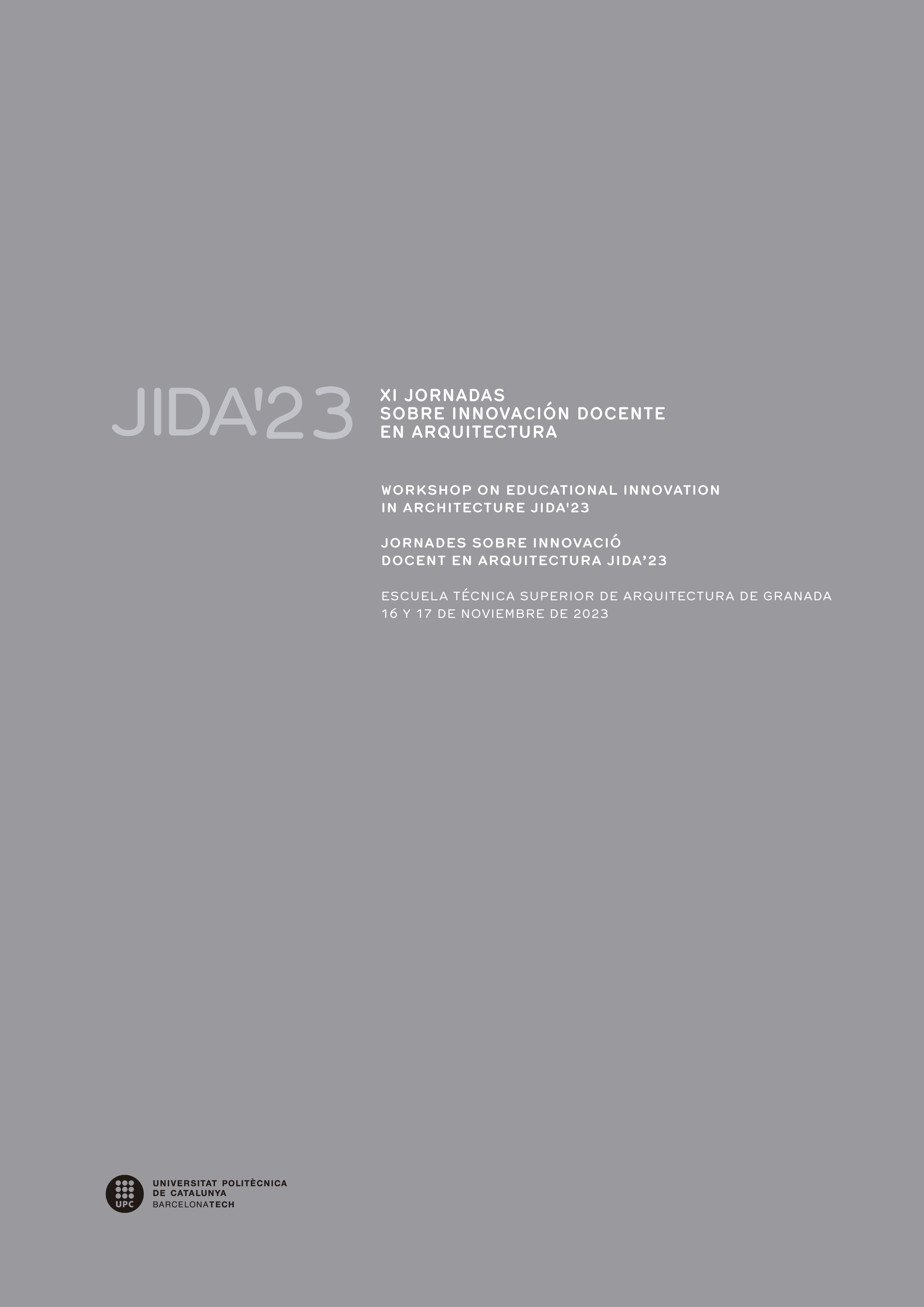Cartografiando el acoso sexual: dos TFG sobre mujeres y espacio público en India
DOI:
https://doi.org/10.5821/jida.2023.12227Palabras clave:
transporte público, violencia de g´énero, urbanismo feminista, India, BollywoodResumen
En el contexto de las Tesis Fin de Grado (TFG) del programa de Diseño Urbano de CEPT University (Ahmedabad, India), se establece una asignatura que promueve la incursión en proyectos de investigación liderados por profesionales. Se busca una comprensión profunda de las preocupaciones relevantes y contemporáneas de la ciudad, algo en lo que las rígidas mallas curriculares difícilmente profundizan, pero que este curso busca promover como potencial punto de partida de una carrera profesional. Esta manera de abordar las TFG implica cursar la asignatura “Directed Research Projects” (DRP), que tiene lugar el quinto año y constituye el último requisito esencial para la obtención del título. Este artículo presenta tanto el DRP propuesto por el autor, titulado “Narraciones cartográficas en situaciones conflictivas”, como el proceso y resultados de esta experiencia docente mediante dos TFG focalizadas en el acoso sexual que sufren las mujeres en las ciudades indias.
Citas
Cano-Ciborro, Víctor. 2020. «Proyectar desde el conflicto: Una experiencia docente en Ahmedabad, India». En JIDA 7. Textos de Arquitectura, Docencia e Innovación, 149-64. Universidad Politécnica de Catalunya / Recolectores Urbanos.
Cano-Ciborro, Víctor, y Ana Medina. 2023. «Invisible networks: Counter-cartographies of dissident spatial practices in La Jota Street, Quito». Cities 140 (septiembre): 104435. https://doi.org/10.1016/j.cities.2023.104435.
Cano-Ciborro, Víctor, y Mansi Shah. 2022. Rebel Bodies Rebel Cities. Ahmedadad: CEPT Press.
Datta, Ayona. 2020. «The “Smart Safe City”: Gendered Time, Speed, and Violence in the Margins of India’s Urban Age». Annals of the American Association of Geographers 110 (5): 1318-34. https://doi.org/10.1080/24694452.2019.1687279.
Doshi, Dhwani. 2021. «Decoding Public Intimacy Through Her Lens: Investigating the Case of Ahmedabad Janmarg». Tesis Fin de Grado, Ahmedabad: CEPT University.
Hernández Daza, Lizeth Alejandra. 2021. «¡Las calles son nuestras! Una cartografía participativa de las violencias hacia las mujeres en el espacio público de Kennedy.» Tesis Fin de Grado, Colombia: Universidad Pedagógica Nacional.
Holston, James. 2012. «Foreword». En Urbanizing Citizenship. Contested Spaces in Indian Cities. New Delhi: SAGE Publications.
Kim, Annette M. 2015. «Critical Cartography 2.0: From “Participatory Mapping” to Authored Visualizations of Power and People». Landscape and Urban Planning, Special Issue: Critical Approaches to Landscape Visualization, 142 (octubre): 215-25. https://doi.org/10.1016/j.landurbplan.2015.07.012.
Lee Peluso, Nancy. 1995. «Whose Woods Are These? Counter-Mapping Forest Territories in Kalimantan, Indonesia». Antipode 4 (27): 383-406.
Lefebvre, Henri. 2013. La producción del espacio. Madrid: Capitán Swing.
Mahadevia, Darshini, Saumya Lathia, y Shalini Banerjee. 2016. «How safe are public spaces for women in Ahmedabad». Centre for Urban Equity Working Paper 32.
Phadke, Shilpa, Sameera Khan, y Shilpa Ranade. 2011. Why loiter?: Women and risk on Mumbai streets. Penguin Books India.
Preciado, Paul B. 2019. Un apartamento en Urano: crónicas del cruce. Anagrama.
Rampal, Divya. 2022. «Cartographying public spaces from women’s perception: fear and tension experienced by women and the influence of Bollywood fiction». Tesis Fin de Grado, Ahmedadad: CEPT University.
Roy, Sanghamitra, y Ajay Bailey. 2021. «Safe in the City? Negotiating safety, public space and the male gaze in Kolkata, India». Cities 117 (octubre): 103321. https://doi.org/10.1016/j.cities.2021.103321.






















